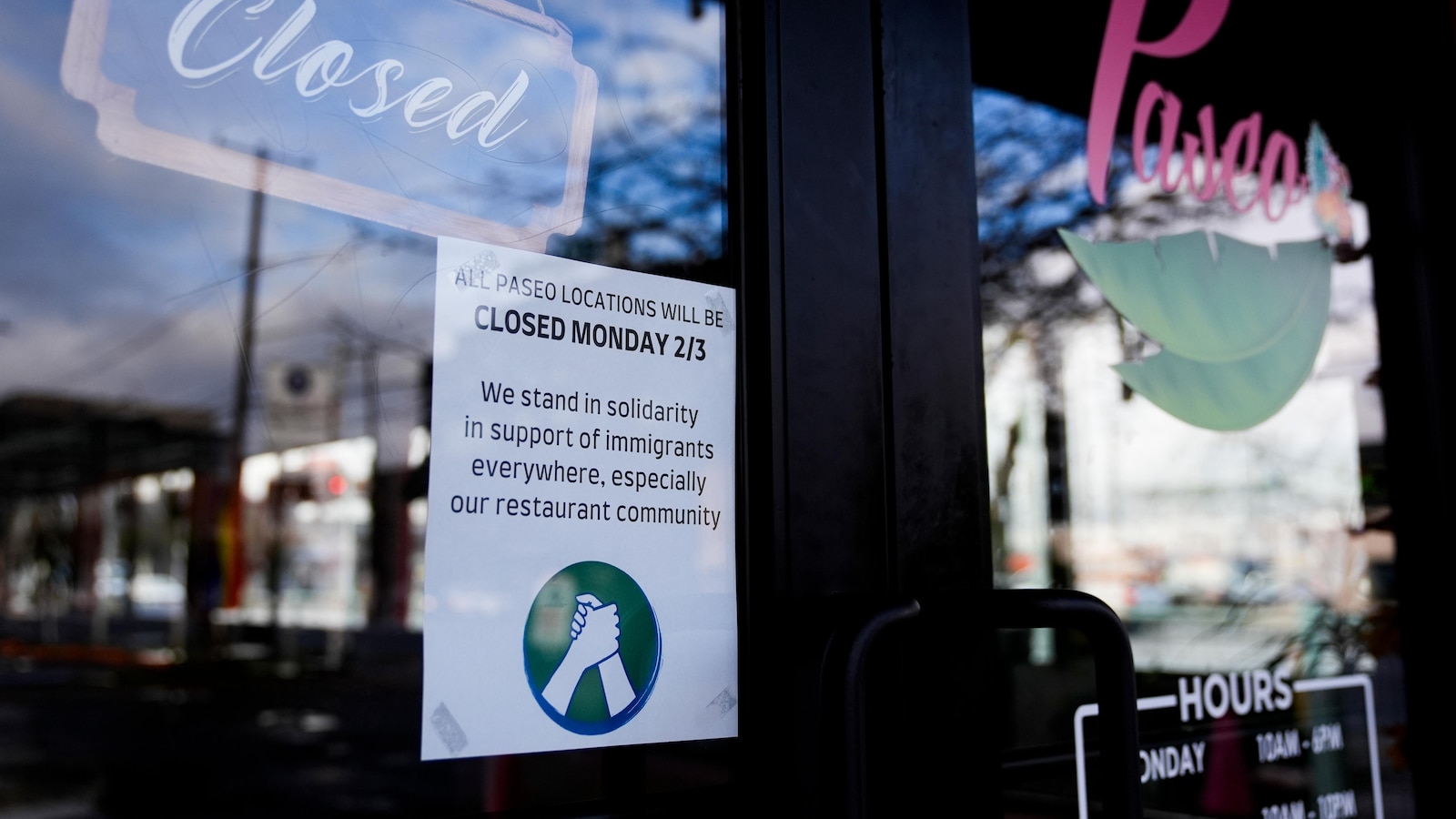The Impact of a ‘Day Without Immigrants’: Business Closures and Economic Consequences
The recent phenomenon of a ‘Day Without Immigrants’ has stirred significant discussions across the United States, particularly regarding the economic implications of such a movement. This event saw numerous businesses temporarily closing their doors, a stark reminder of the critical role immigrants play in the American workforce. As communities rallied to support the cause, many business owners found themselves at a crossroads, grappling with the economic consequences of these closures and the broader implications for the economy at large.
Understanding the ‘Day Without Immigrants’
The ‘Day Without Immigrants’ is an annual event that aims to highlight the contributions of immigrant workers in various sectors of the economy. By encouraging immigrants to refrain from work, school, and consumer activities for a day, the movement seeks to raise awareness about their essential roles and the potential impact of anti-immigrant policies. This year, like in previous iterations, the event gained traction, leading to widespread business closures and a significant reduction in consumer activity.
Business Closures: A Symbol of Dependence
During the most recent ‘Day Without Immigrants,’ many businesses chose to close as a show of solidarity with their immigrant employees. Restaurants, construction companies, and retail stores were among those affected, underscoring a vital truth: the American economy is intricately tied to immigrant labor. A few notable points regarding these closures include:
- Economic Impact: Estimates suggest that thousands of businesses closed, resulting in millions of dollars in lost revenue. For many small businesses, this loss can be devastating, particularly if they are already operating on thin margins.
- Employee Support: Business owners expressed their support for their immigrant staff, acknowledging that their absence would severely affect day-to-day operations. This solidarity highlights the human aspect of the economic discussion.
- Community Response: Communities rallied around these businesses, emphasizing the interconnectedness of local economies and the immigrant workforce.
The Broader Economic Landscape
The closures during a ‘Day Without Immigrants’ bring to light critical questions about the sustainability of businesses that rely heavily on immigrant labor. The economic landscape of the United States is shaped by a diverse workforce, where immigrants contribute significantly across various sectors. The implications of their absence can be profound:
- Labor Shortages: Many industries face labor shortages exacerbated by restrictive immigration policies. This shortage can lead to increased operational costs, decreased productivity, and ultimately, higher prices for consumers.
- Innovation and Growth: Immigrants are often at the forefront of innovation, contributing to entrepreneurship and the creation of new businesses. Their absence can stifle growth opportunities in industries that thrive on diversity and fresh perspectives.
- Consumer Spending: Immigrants are not only workers but also consumers. Their participation in the economy drives demand for goods and services. A day without their contributions can have a ripple effect on local economies.
Business Owners Weighing Options
As many business owners navigated the decision to close, they faced a dilemma: the moral imperative to support their immigrant employees versus the financial reality of lost income. For some, the choice was clear, while others expressed concern about the long-term viability of their business. Here are a few perspectives:
- Solidarity as a Business Strategy: Many owners viewed their participation as a long-term strategy to build loyalty with their employees and customers. By demonstrating commitment to their workforce, they hoped to foster a stronger community relationship.
- Financial Reality: Conversely, others worried that the income lost during the closure could jeopardize their business’s stability. For small businesses operating on tight budgets, every dollar counts.
- Future Considerations: Business owners are also considering how continued closures might impact future revenues. While they may support the cause, they must balance this with the need to stay financially afloat.
The Ripple Effect on Local Economies
The economic consequences of a ‘Day Without Immigrants’ extend beyond individual businesses. Local economies can feel the impact through various channels:
- Job Losses: Prolonged absences of immigrant workers can lead to layoffs if businesses are unable to sustain their operations without them.
- Community Services: Many local services depend on the contributions of immigrant workers. Schools, healthcare facilities, and non-profit organizations may face challenges if these workers are not present.
- Social Fabric: The event highlights the social and cultural contributions of immigrants, reinforcing their role in community cohesion and diversity.
Moving Forward: Rethinking Immigration Policy
The events surrounding the ‘Day Without Immigrants’ can serve as a catalyst for re-evaluating immigration policies. Policymakers must consider the essential contributions of immigrants to the economy and society. Here are several avenues for consideration:
- Comprehensive Immigration Reform: A more inclusive policy framework could help address labor shortages while ensuring that immigrant workers receive fair treatment and protection.
- Support for Small Businesses: Initiatives that support small businesses in hiring and retaining immigrant workers can foster economic growth and stability.
- Community Engagement: Encouraging dialogue between community leaders, business owners, and immigrant advocates can lead to more informed and effective policies.
Conclusion
The ‘Day Without Immigrants’ serves as a powerful reminder of the integral role that immigrants play in the U.S. economy. As businesses grapple with the immediate consequences of closures, it is essential to recognize the broader implications for local economies, labor markets, and future growth. By fostering an environment that values and supports immigrant contributions, the economy can thrive, benefiting all Americans. The time has come to engage in meaningful discussions about immigration that honor the contributions of all workers while paving the way for a more prosperous future.
Ultimately, the challenge lies in balancing solidarity with economic sustainability, ensuring that the voices of immigrants are heard and their contributions valued in the ongoing conversation about the American economy.
See more CCTV News Daily



